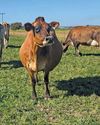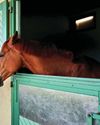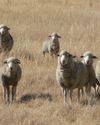試す 金 - 無料
Grain SA on the road to improving circumstances for local grain farmers
Farmer's Weekly
|Farmer's Weekly 17 February 2023
Glenneis Kriel recently attended Grain SA's regional meeting in Moorreesburg, Western Cape, where the industry body summed up its activities over the past year.

While 35% of grain industry levy contributions around the world are W voluntary, an average of 80% to 90% of contributions collected by Grain SA from different regions in the Western Cape are voluntary.
This was according to Derek Mathews, chairperson of Grain SA, who spoke at the industry body's recent regional meeting in Moorreesburg.
According to him, the success of levy collections in the province could be ascribed to the fact that farmers there had a strong sense of community.
They also had first-hand experience of the benefits of working together and the involvement of businesses in collecting the levies upon first delivery of the grain.
Mathews added that Grain SA had been in discussions with businesses in other provinces, and good progress had been made in the Free State.
However, many of the businesses were unwilling to collect levies in the absence of written authorisation from producers for them to do so.
In the Western Cape, however, businesses deducted levies automatically unless otherwise requested.
このストーリーは、Farmer's Weekly の Farmer's Weekly 17 February 2023 版からのものです。
Magzter GOLD を購読すると、厳選された何千ものプレミアム記事や、10,000 以上の雑誌や新聞にアクセスできます。
すでに購読者ですか? サインイン
Farmer's Weekly からのその他のストーリー
Farmer's Weekly
Farmers 'unilateral victims' of climate
Gyeongbuk Provincial Council member Choi Taerim has demanded immediate and substantial support for apple farmers in the South Korean province, urging immediate measures for apple farmers affected by heat damage be implemented, The Asia Business Daily recently reported.
1 min
November 21-28, 2025

Farmer's Weekly
Top agri workers celebrated in the Western Cape
Shannon Robertson, assistant livestock manager at Boschendal near Franschhoek, was crowned the overall winner of the 2025 Western Cape Prestige Agri Awards, held in Durbanville.
1 min
November 21-28, 2025

Farmer's Weekly
Smart dairying: running Jerseys on pasture
The dairy farming sector has seen innovation in milk parlour and cow comfort technology that have allowed farmers to not only yield higher volumes, but extend the productive lifespan of their cows. Albrecht de Jager told Henning Naudé about his approach to maintaining a pasture-raised Jersey herd while utilising precise data measuring technology to ensure quality milk output and optimal cow comfort.
6 mins
November 21-28, 2025

Farmer's Weekly
High-performance dairy farming in the Eastern Cape: the Rufus Dreyer approach
Dairy farming is often described as one of the most technically demanding and strategically complex branches of agriculture.
6 mins
November 21-28, 2025

Farmer's Weekly
Design your stables and camps to assist in AHS control
Keep horses away from areas where disease-carrying midges multiply, like natural pools, lakes, streams and dams, advises Dr Mac.
2 mins
November 21-28, 2025

Farmer's Weekly
The rolling chant that has echoed through SA over the past 30 years
Johan van der Nest is renowned in auction circles and was the first freelance stud-stock auctioneer to begin operating in South Africa.
10 mins
November 21-28, 2025

Farmer's Weekly
Flight from the Red Army
The fall of the Third Reich in 1945 was defined by the Red Army's brutal invasion of Germany. Mike Burgess tells how the Hoppe family trekked from Finowfurt near Berlin to Preetz in Schleswig-Holstein to escape the brutality.
6 mins
November 21-28, 2025

Farmer's Weekly
How to plan a pre-sale feeding programme
Proper feeding of animals before a sale can help producers catch the eye of buyers and increase profits, but it is important to choose the right ration.
8 mins
November 21-28, 2025

Farmer's Weekly
How women are transforming coffee production in Kenya
A group of Kenyan smallholder women farmers are transforming the country's high-value coffee sector by pooling their resources.
5 mins
November 21-28, 2025

Farmer's Weekly
Tough times ahead for SA's grain farmers
Grain farmers face a difficult year ahead with lower grain prices and high production costs
3 mins
November 21-28, 2025
Translate
Change font size

